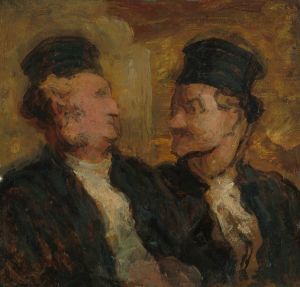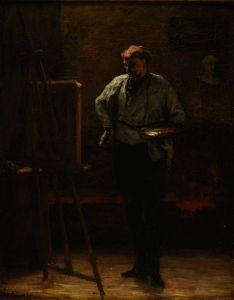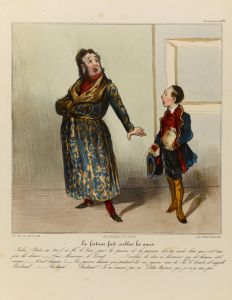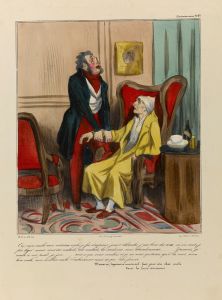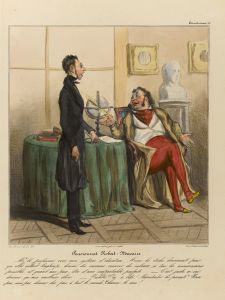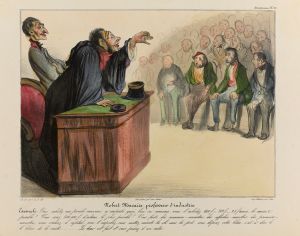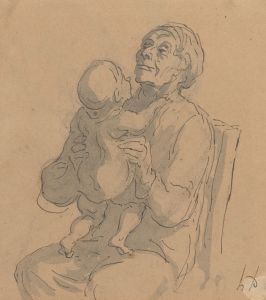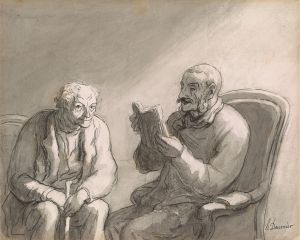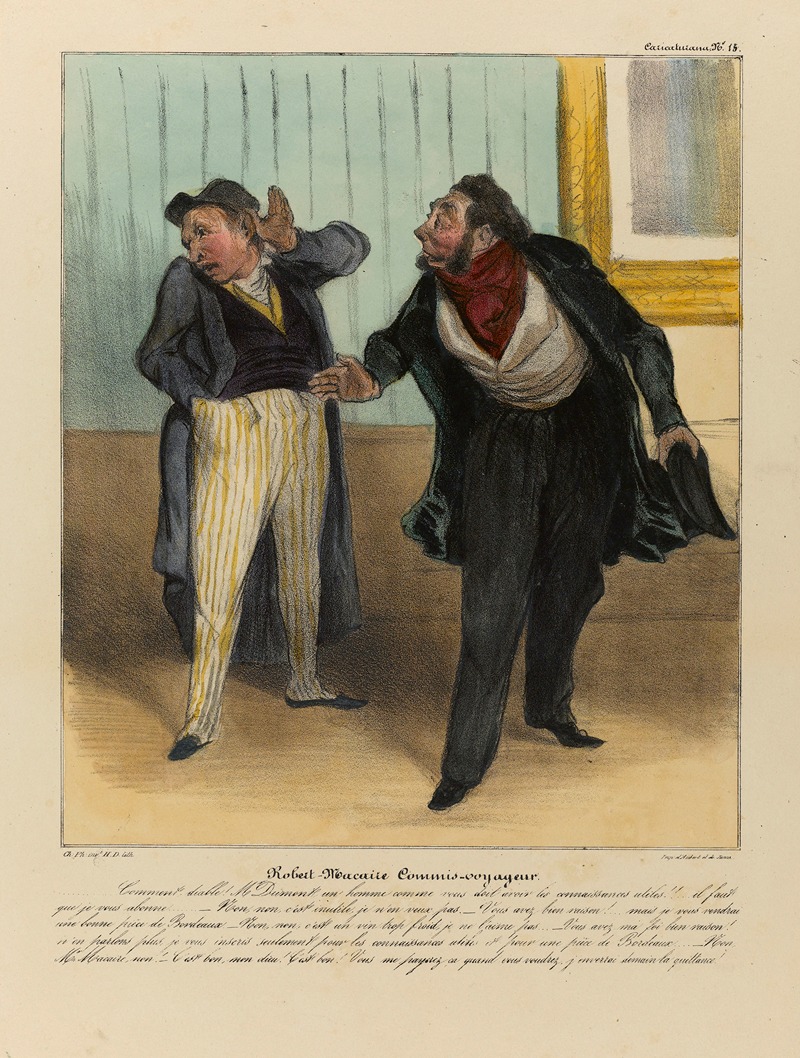
Robert Macaire commis-voyageur
A hand-painted replica of Honoré Daumier’s masterpiece Robert Macaire commis-voyageur, meticulously crafted by professional artists to capture the true essence of the original. Each piece is created with museum-quality canvas and rare mineral pigments, carefully painted by experienced artists with delicate brushstrokes and rich, layered colors to perfectly recreate the texture of the original artwork. Unlike machine-printed reproductions, this hand-painted version brings the painting to life, infused with the artist’s emotions and skill in every stroke. Whether for personal collection or home decoration, it instantly elevates the artistic atmosphere of any space.
"Robert Macaire commis-voyageur" is a lithograph created by the renowned French artist Honoré Daumier. Daumier, born in 1808 and passing in 1879, was a prolific artist known for his satirical works that often critiqued the social and political landscape of 19th-century France. His oeuvre includes paintings, sculptures, and a significant number of lithographs, which were particularly influential in shaping public opinion during his time.
The character of Robert Macaire originated from a popular play titled "L'Auberge des Adrets," first performed in 1834. The character, portrayed by actor Frédérick Lemaître, became emblematic of the archetypal swindler and con artist, resonating with audiences due to his cunning and humorous nature. The play's success led to the character's widespread recognition, and Robert Macaire became a symbol of the unscrupulous businessman, a theme that Daumier explored extensively in his work.
Daumier's lithograph "Robert Macaire commis-voyageur" is part of a larger series titled "Les Robert Macaire," which he produced between 1836 and 1838. This series consists of 100 lithographs, each depicting the character of Robert Macaire in various guises and professions, satirizing the corruption and moral ambiguity prevalent in French society at the time. The lithographs were published in the satirical newspaper "Le Charivari," which was known for its critical stance on contemporary politics and society.
In "Robert Macaire commis-voyageur," Daumier presents Macaire as a traveling salesman, a role that allowed him to explore themes of deception and exploitation in commerce. The lithograph captures the essence of Macaire's character, with exaggerated features and a sly expression that convey his duplicitous nature. Daumier's use of bold lines and stark contrasts enhances the satirical impact of the image, making it both visually striking and thematically potent.
Daumier's work, including the "Robert Macaire" series, played a significant role in the development of caricature as an art form. His ability to blend humor with incisive social commentary set a precedent for future generations of artists and cartoonists. The lithographs not only entertained but also provoked thought and discussion about the ethical and moral issues facing society.
The "Robert Macaire" series, and "Robert Macaire commis-voyageur" in particular, exemplify Daumier's mastery of lithography and his keen insight into human nature. Through his art, Daumier captured the complexities of his time, using the character of Robert Macaire to critique the pervasive dishonesty and greed he observed in the world around him.
Today, Daumier's lithographs are celebrated for their artistic merit and historical significance. They offer a window into the social dynamics of 19th-century France and continue to be studied for their innovative approach to satire and caricature. "Robert Macaire commis-voyageur" remains a testament to Daumier's enduring legacy as a pioneer of social commentary through art.





